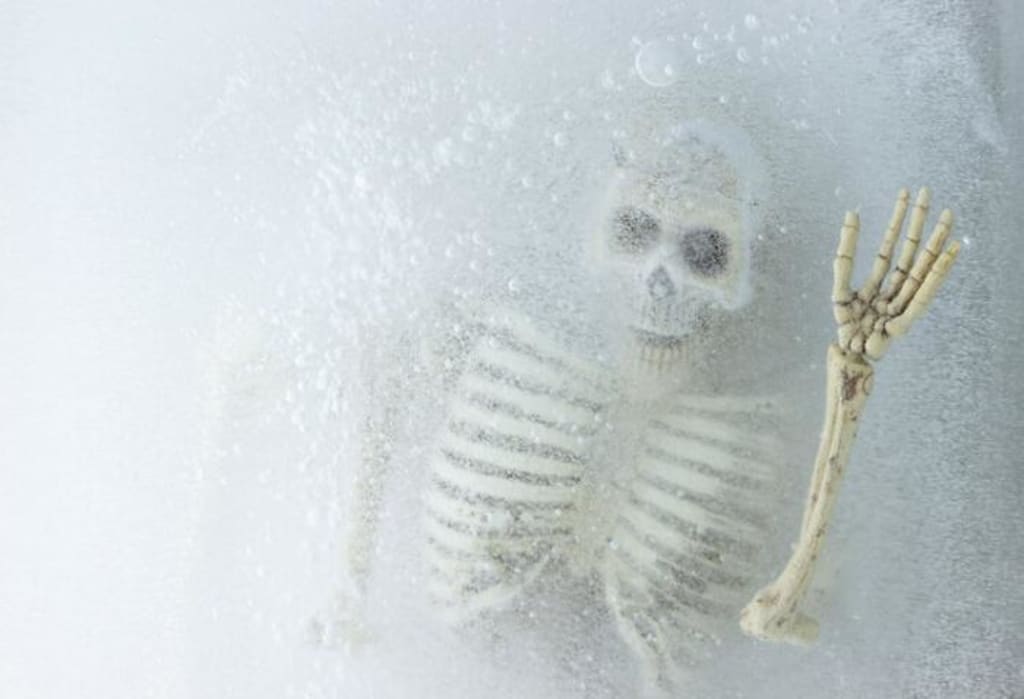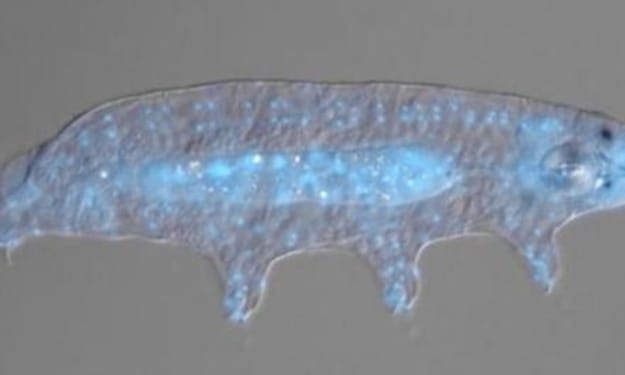What happens to a person's body in the months following its death if it is not disposed of?
When people die, their bodies still move?

From ancient times to the present day, longevity has been an eternal pursuit of mankind, from emperors to people. However, almost all animals come to the end of their lives, except for the lighthouse jellyfish - the only animal in the world that does not die.
Faced with death, some people are fearful, some are relieved, and some are curious about what happens after death, documenting the process of change in the body of the deceased.
If you are brave and curious about these lesser known things, why not come on a "thrilling adventure" with Xiaojiu!
A study has found that corpses can still move a year after death
The body will still move after death? Does this sound like nonsense to you? No, it's not.
A new Australian study has found that even 17 months after a person dies, the body is still visibly "moving". For example, the arms that were originally attached to the torso may have shifted outwards, which is related to decomposition, stiffening and the drying out of tissues such as ligaments.
According to the researchers, the results will have important implications for crime scene investigations, as better and more accurate identification of the body's activity and the rate of decomposition will help forensic pathologists to deduce the time of death, cause of death, etc., and speed up the solving of cases
So, what happens to a person's body after death? This might be a bit heavy-handed, so please watch with caution.
Secondly, after a person dies, what will happen to the body?
-The moment of death
At the moment of death, the pupils of the deceased will become bigger and look like glass crystals.
-1 to 3 minutes after death
The blood stops flowing and begins to collect, the skin begins to change colour, the muscles become completely loose, the bowels and bladder begin to empty and the brain cells die in batches.
-Death 4~9 minutes
The dilated pupils gradually lose their light, the eye bodies slowly flatten out, the blood pressure is non-existent and the brain stem is completely dead.
During this time, the body also begins to "self-decompose", as enzymes begin to digest the cell membranes. As the cells decompose, the contents of the organs begin to be exposed, usually starting with the liver, which has the highest concentration of enzymes, and the brain, which has a high water content, before moving on to other tissues and organs.
-Death 1 to 8 hours
At this stage, the body's muscles have gradually stiffened, also known as "rigor mortis", and the blood has clotted, causing the skin to turn black and the hair to stand on end. After about 8 hours, the body becomes completely cold.
-36 to 72 hours of death
"This is when the body's own micro-organisms spread and begin to digest our intestines, the tissues surrounding the digestive tract, the liver and spleen, the heart and brain, and begin to decay from the inside out, a process that takes almost 58 hours.
-Death 3 to 10 days
The body begins to swell and the micro-organisms continue to "digest" the remaining organic material, which, together with the unbearable odour caused by decay, etc.
-Weeks to months of death
At this stage, apart from the bones, nails, teeth and other structures, the rest of the body gradually liquefies and the fat is transformed into green matter, eventually returning to nature under the attack of microorganisms and corrosive organisms.
Apart from the physical changes, many people also wonder: where does the consciousness drift off to when a person dies? Does it disappear with them? Does the consciousness of a person really exist after death?
Where does consciousness go after death?
This question relates to the term Near-death experience (NDE), which refers to the unexpected recovery of a person who has suffered a fatal trauma or illness and is able to explain in detail the miraculous experience he or she had at the time of death.
A survey of Near-death experiences reveals that when patients are close to death, they look back on their lives for a very short period of time and see an intense light that draws them forward and gives them a 'God's-eye view' of themselves as they die.
Many people who have experienced a near-death experience are able to re-examine themselves after the ordeal and become more passionate about life.
Dr Sam Parnia of New York University School of Medicine has studied and documented a number of patients who have had near-death experiences. Many of the patients said they could hear what the doctors said during resuscitation after they were pronounced dead by the doctors and knew they were dying.
Dr Sam said that when a person is pronounced dead, the heart and brain stop functioning and for two to 20 seconds, the brain waves are in a straight line of death and the instruments do not capture the movement of the brain waves anymore.
However, a report in the Canadian Journal of Neuroscience mentions that there have been cases of patients whose heart has stopped and whose arterial blood pressure has disappeared, but the instrument still captures weak delta brain wave activity with a waveform similar to that of deep insomnia.
Some scientists disagree with this claim, arguing that it is simply a state of backflow in the blood vessels of the brain, an abnormal brain movement that has nothing to do with the "soul" or "consciousness".
The brain waves after death, the soul and consciousness of the human brain ...... are still difficult to explain to humans nowadays, and we have no way to experience the sensations and changes of death.
About the Creator
Vicky
The world is so wonderful, let's get to know the world together!
Enjoyed the story? Support the Creator.
Subscribe for free to receive all their stories in your feed. You could also pledge your support or give them a one-off tip, letting them know you appreciate their work.






Comments
There are no comments for this story
Be the first to respond and start the conversation.